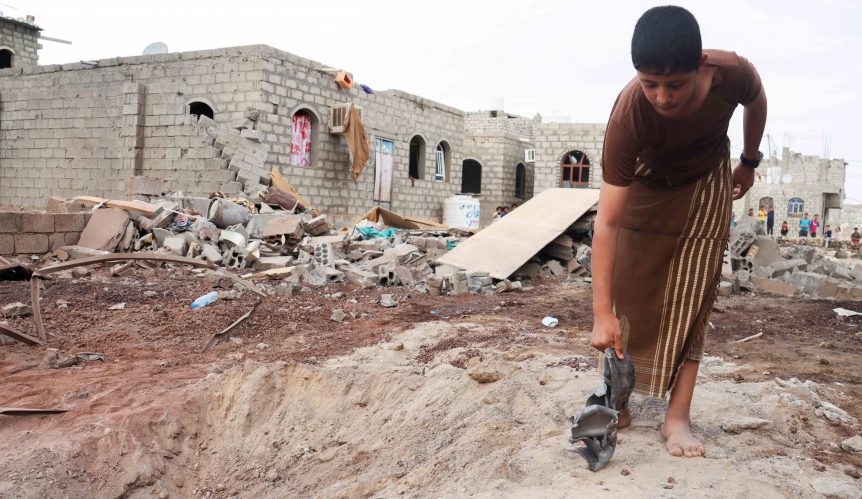(5 October 2021 – Geneva) The United Nations Human Rights Council (The Council) will vote on Thursday, 7 October on a resolution to renew the Group of Eminent Experts on Yemen (GEE), the only international mechanism to examine human rights abuses and other atrocities being committed in Yemen. There are indications that Saudi Arabia and its allies—whose actions in Yemen are also under scrutiny by the Group of Experts —have increased lobbying efforts in state capitals around the world in a bid to undermine support for the resolution and to do away with the GEE.
Civil society, including Yemeni human rights defenders, have warned that failing to support and strengthen the UN investigation could have a devastating impact on the lives of millions of Yemeni citizens. Impunity for war crimes and other violations of international law have fuelled the conflict in Yemen, creating the world’s “largest man-made humanitarian catastrophe.”
According to Radhya Almutawakel, Chairperson of Mwatana for Human Rights, a prominent Yemeni human rights organization, “The GEE is the only independent and impartial mechanism working to deter war crimes and other violations by all parties to the conflict. Allowing this body to be done away with would be a green light to continue such violations, and, in effect, condemn millions in Yemen to ‘unremitting violence, death and constant fear.’”
The GEE’s latest report, entitled “A nation abandoned: A call to end Yemen’s suffering,” once again exposes brutal attacks carried out against civilians throughout the country by both the Saudi/UAE-led coalition and the Ansar Allah (Houthi) armed group. It also sends a warning: a lack of political will amongst the parties to the conflict and the international community to ensure effective accountability for these violations of international law remains a primary obstacle to ending civilian harm and broader human suffering within the country.
The ongoing conflict has ravaged the country and its population. At least 233,000 people have lost their lives, including 102,000 as a direct result of hostilities and 131,000 from indirect causes, such as conflict-related famine, and destruction of health services and infrastructure, to name a few.
Attacks on homes, schools, hospitals, civilian infrastructure and humanitarian aid have put Yemen on a path towards one of the largest famines in modern history. Today, over 400,000 Yemeni children are at risk of dying of starvation and malnutrition, and 16.2 million people face acute food insecurity. This is not incidental. There is compelling evidence that the warring parties are deliberately starving Yemenis as a method of warfare.
Jeremie Smith, Director of the Geneva Office of the Cairo Institute for Human Rights Studies (CIHRS), said, “The choice before member states of the Council is clear – either cave into Saudi pressure or vote to renew the GEE. It is time for states like Japan and others who have abstained on this issue in the past to step up and demonstrate they are committed to upholding international law and protecting the people of Yemen.”
The resolution renewing the mandate of the GEE was circulated to UN member states by the Core Group[1] leading the resolution last week. States have until 7 October to decide if they will abstain from or vote for or against the resolution.
Contacts: Nada Awad, CIHRS (Geneva) – nada@cihrs.org – +41 (0)76 782 4568 (Arabic, English, French)
Osamah E. Al-Fakih, Mwatana (Sanaa) – oalfakih@mwatana.org – +967 77 554 6904 (Arabic, English)
[1] Belgium, Canada, Ireland, Luxembourg, and Netherlands
Share this Post

